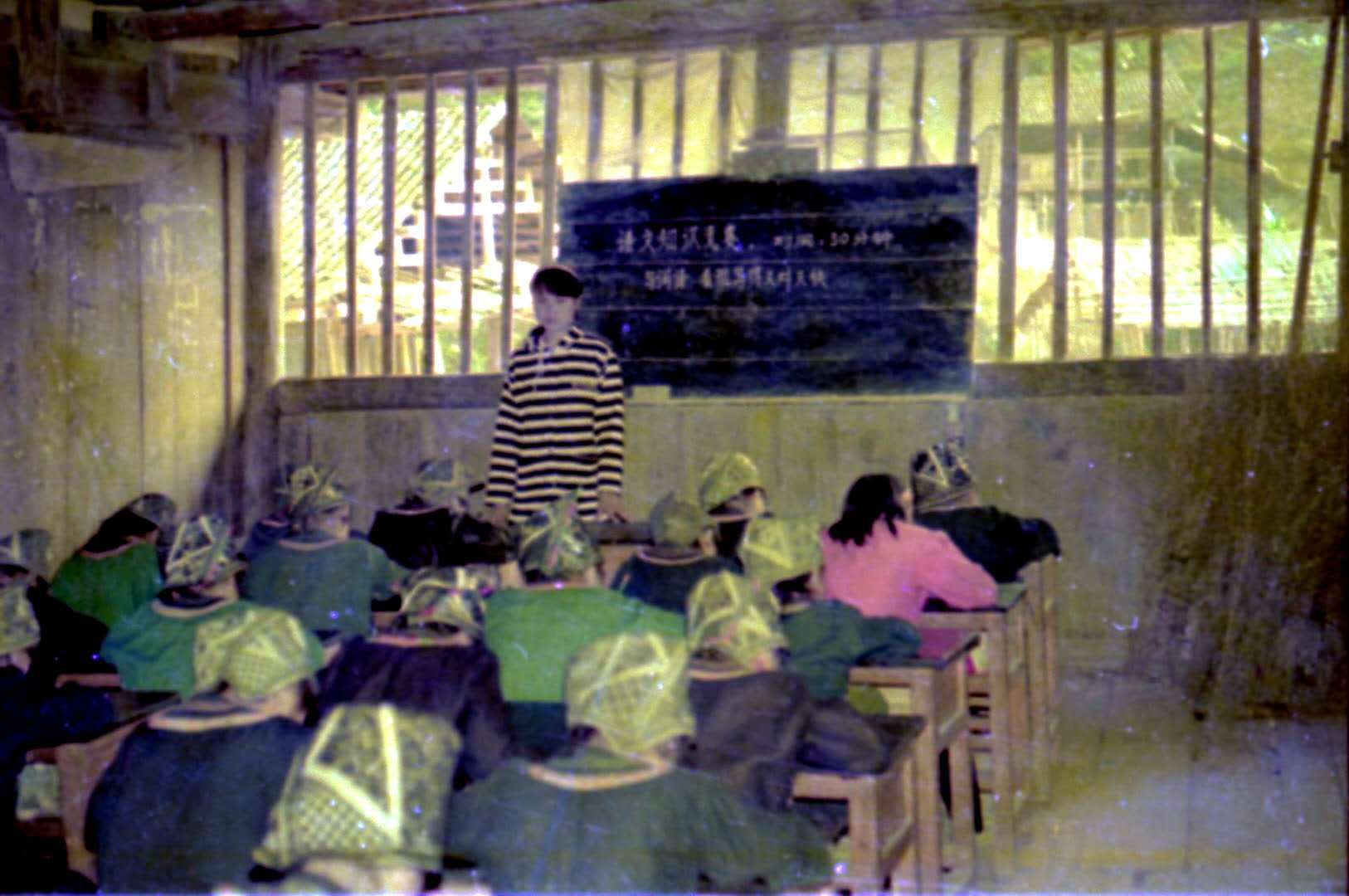
Culture China
18:03, 31-May-2019
Rural teacher commits to popularizing written language of ethnic minority
Updated
20:30, 31-May-2019
By Zhao Yunfei, Zhang Youze, Meng Mingwei
06:02

For many rural teachers in China, their job was more than just spreading knowledge. Yang Hui came to the remote Guiliu village in 1992 to teach the first ever girls' class.
Guiliu is located in southwest China's Guizhou Province. The valley is separated from the outside world by inadequate infrastructure, so before Yang started her teaching career, girls there didn't go to school.
"I came with a sense of mission," Yang said. Conventional thoughts kept women at home to do embroidery works, and it was hard to convince parents to send their girls to school.

Yang Hui came to Guiliu village in 1992 to teach the girls' class. /Courtesy of Yang Hui
Yang Hui came to Guiliu village in 1992 to teach the girls' class. /Courtesy of Yang Hui
Yang started to teach embroidering to increase attendance. She then taught Mandarin and math, the subjects that the girls truly wanted to learn.
"If Yang Hui didn't come to teach us, we couldn't be that successful today. We love her and respect her so much," said Yang Wanmei, Yang Hui's former student, who became a countryside doctor in the valley.
As decades passed, girls' education was no longer an issue.
"In the past, men were in charge of the family. Today, well-educated women are also confident enough to make decisions," Yang Hui said.

Yang Hui demonstrates how to design an apron in class. /CGTN Photo
Yang Hui demonstrates how to design an apron in class. /CGTN Photo
But now Yang faces another challenge – children in the valley seemed to have lost their identities.
"Everyone knows a handmade apron is pretty. It's embroidery work that belongs to our people. But you just said you even didn't know how to embroider," Yang told her current students during an art class in Guiliu Primary School.
Today, embroidery is still part of Yang's classes. Yang said she bore pressure from parents, who paid close attention to their children's academic behaviors.
Like many other countryside areas in China, Guiliu village suffered from rural hollowing amid the tide of urbanization. Young adults chose to work in urban areas to earn more money. Many migrant workers believed good academic performance can change a family's destiny.
But Yang believed that intangible cultural heritage products could also bring income to the village.

Young adults opt to work in urban areas, leaving behind seniors and children in Guiliu village. /CGTN Photo
Young adults opt to work in urban areas, leaving behind seniors and children in Guiliu village. /CGTN Photo
"I often tell my students that they will find it helpful sooner or later," Yang said.
"We offer academic classes and culture classes at school because both are important. Students should have some basic knowledge of their own background and that is part of cultural inheritance," said Yang Xiumi, the principal of Guiliu Primary School.
Local traditional culture was already diminishing, such as the Dong chorus, said Yang Hui.
"Dong people believe that singing well shows a person's good virtue," Yang said, as the lyrics teach people to be faithful and friendly.
Due to the lack of education and the influence of Han culture, few people knew how to write in the Dong language. Some unpopular song lyrics were not accurately recorded.

The Guiliu village is a relatively remote area, separated from the outside world. /CGTN Photo
The Guiliu village is a relatively remote area, separated from the outside world. /CGTN Photo
"If you document the Dong songs in Mandarin, they won't be accurate," Yang said.
Therefore, Yang is on another mission to visit villages nearby during weekends and teach children Dong language.
Most Dong people could speak their language but didn't know how to write, yet the Dong language was not standardized due to the dialect differences between villages.
Yang was in a team to unify the writing conventions and said it took time to popularize the language.
"Every ethnic group treasures its culture. Culture gives people confidence," Yang said. "When you're emotionally attached to your hometown, you'll feel responsible enough to pass down your culture."

SITEMAP
Copyright © 2018 CGTN. Beijing ICP prepared NO.16065310-3
Copyright © 2018 CGTN. Beijing ICP prepared NO.16065310-3